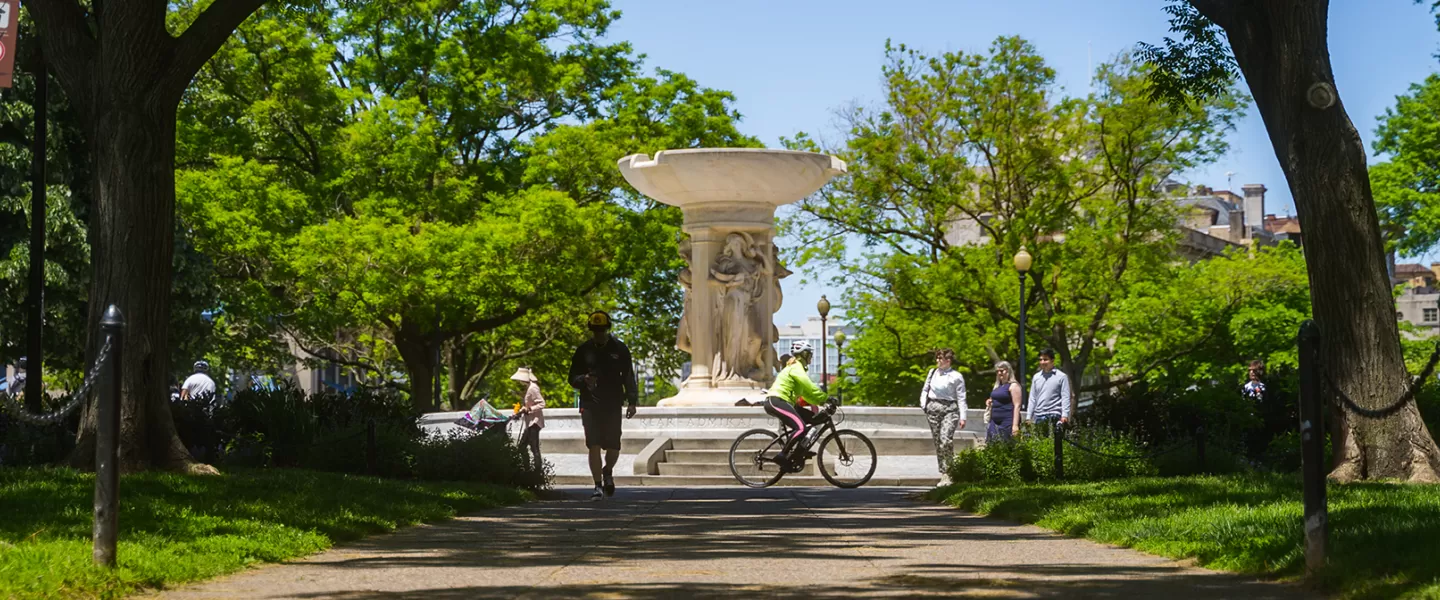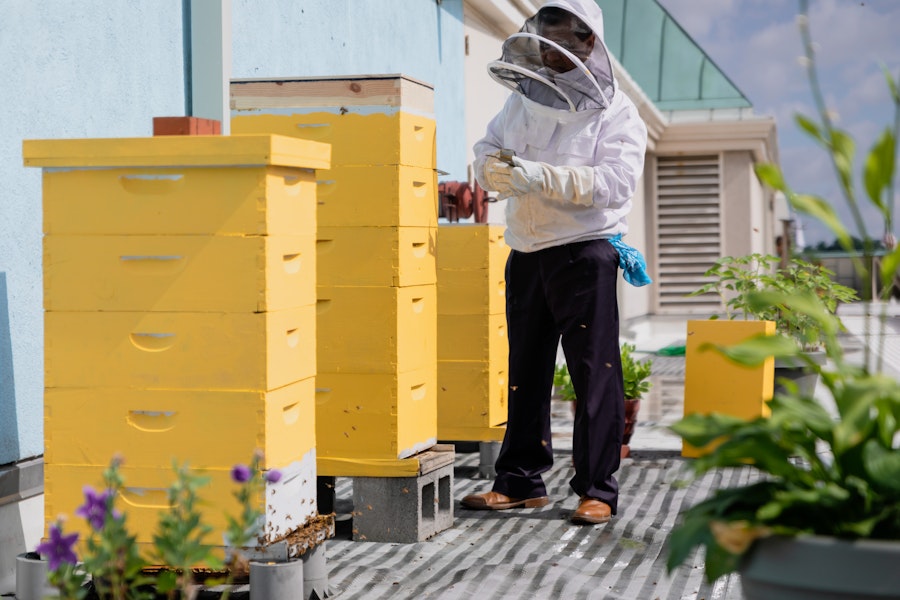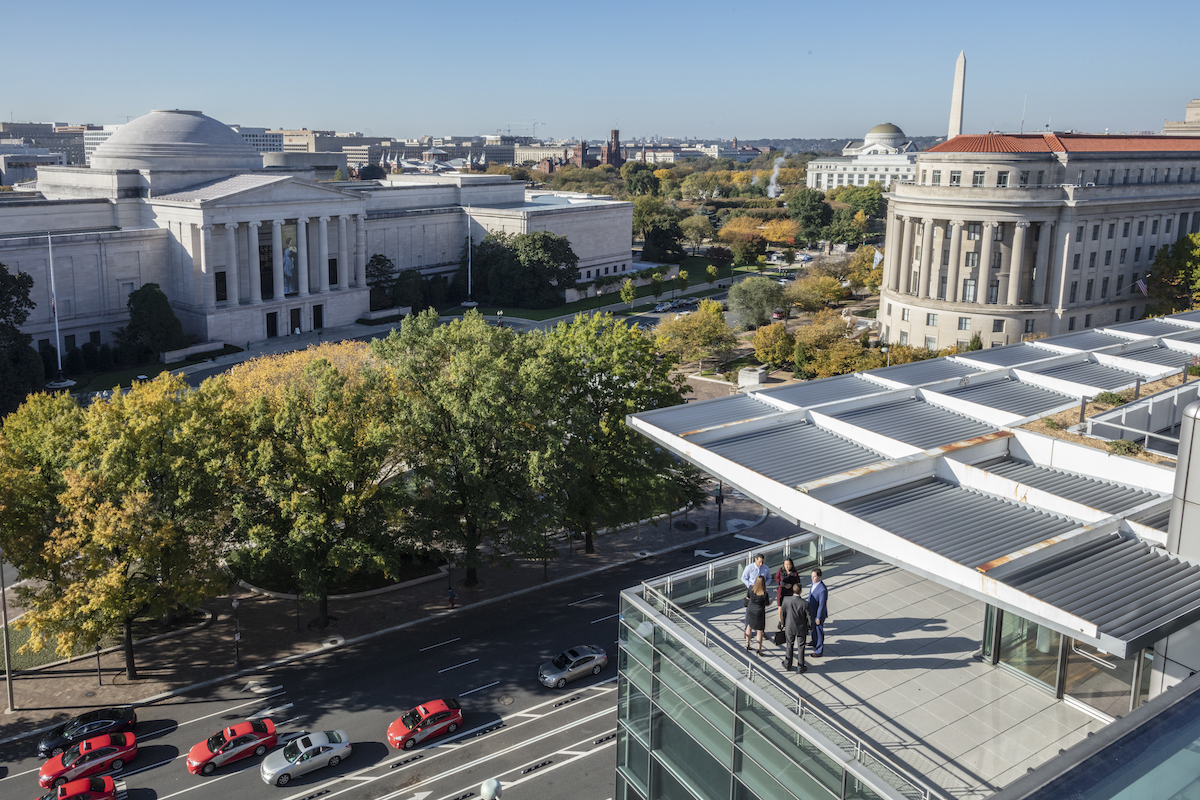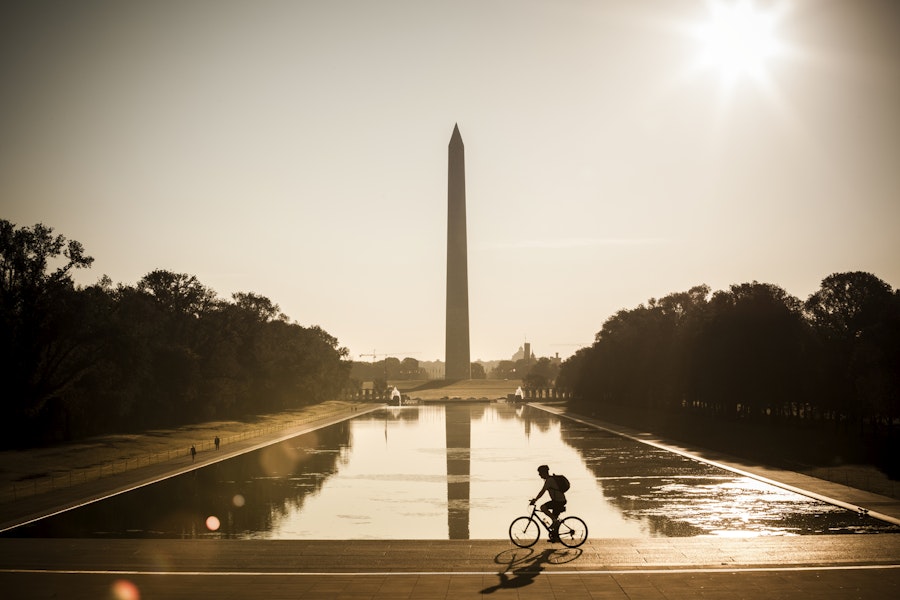
Explore one of the healthiest and most livable cities in the nation.
No matter your meeting’s focus – biotech, pharma, medical, education – Washington, DC seamlessly builds sustainability into your program. Trade shuttles for accessible public transportation or cater from a selection of restaurants from Destination DC’s Sustainability District members list.
Read on to see how DC is purposefully making the future of conferences more sustainable, leading to a more environmentally conscious industry.
“We wanted a destination where we've got great airlift and public transportation. We're spread out across 57 different hotels [and] we do not bus. Our folks are walking and taking public transportation...We're also looking for green space. DC is a unique green city with great infrastructure. All that is baked in so that we can come and show from an AGU perspective that we have partnered with the folks that are doing work that we as scientists support.”
– Sara Haywood, Interim VP of Meetings & Learning, American Geophysical Union
Accolades

- #1 sustainable destination in the U.S. among participating destinations (Global Destination Sustainability-Index 2021-2025)
- #2 U.S. city with the most energy star certified buildings (U.S. Environmental Protection Agency, 2024)
- #2 Greenest City (WalletHub, 2025)
- 1st LEED Platinum City in the World
- #1 Park System in the Country (Trust for Public Land, 2025)
- Most square feet of LEED-certified space per capita in the U.S. (USGBC, 2024)
Local Support
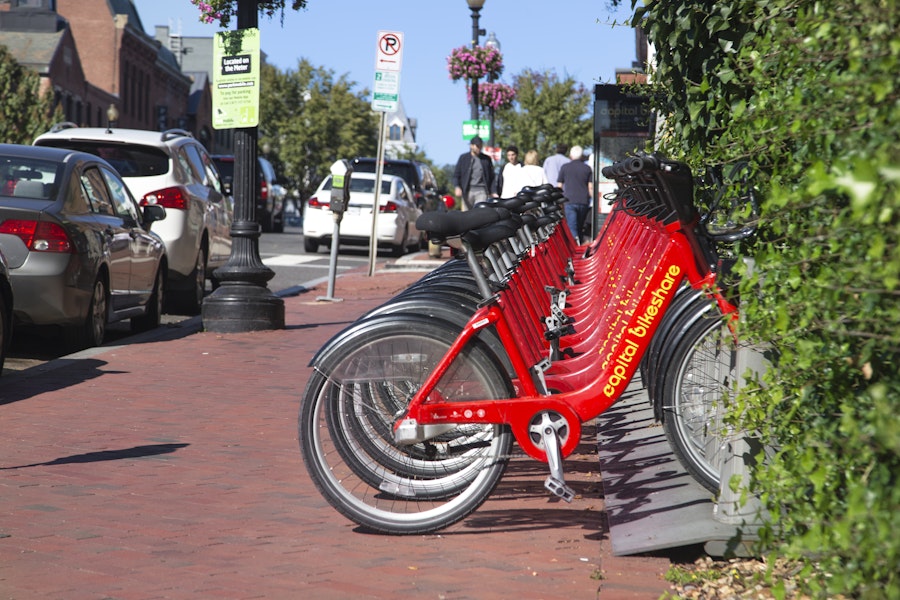
- The District of Columbia is committed to sustainable practices affirmed by:
- The goal to be carbon neutral by 2045
- Carbon Free DC: 60% reduction in carbon emissions by 2030, 50% reduction in per capita energy use and a 50% increase in renewable energy by 2032.
- Clean Energy DC Omnibus Amendment Act: adopt a Net Zero Energy building code by 2026, zero-emission public bus fleets by 2042 and reach 100% renewable electricity for the city by 2032.
- The nation's first 100 percent renewable energy bill
- As of 2025, Washington Metropolitan Area Transit Authority (WMATA) has contracted New Flyer America to deliver up to 500 hybrid and battery-electric buses over the coming years.
- In 2020, DC's urban tree canopy equals 37% with a goal to reach 40% by 2032.
- The DC Green Bank is an innovative policy tool that will use public purpose funding to attract private investment to prioritize making a clean economy.
- DC Water’s Bailey Bioenergy Facility, the world’s largest thermal hydrolysis installation, helps DC produce bioenergy more efficiently while turning waste into a productive resource.
- The District has over 250 miles (over 410 kilometers) of dedicated bike lanes and trails.
- DC introduced low-cost memberships as part of its bike-share program to ensure that healthy, green transport is widely available.
Access & Innovation
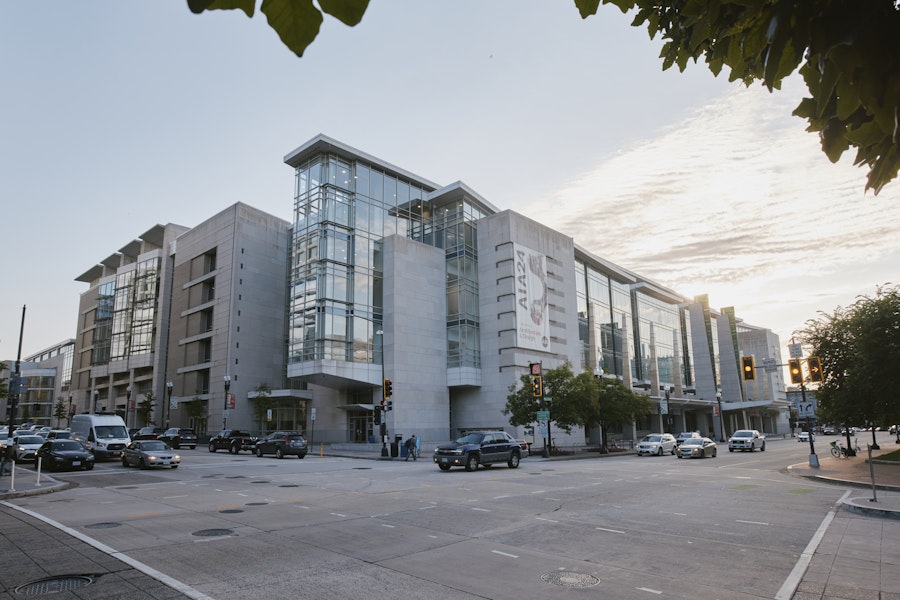
Romoff Media
- U.S. Green Building Council (creator of LEED) is headquartered in DC.
- American Geophysical Union’s 62,000-square-foot headquarters is the first-ever net zero energy renovation of an existing building in DC.
- American University is the first urban campus, the first research university and the largest higher education institution in the U.S. to achieve carbon neutrality.
- Catholic University is home the largest urban ground solar array in the U.S., saving 7.115 metric tons of greenhouse gas emissions annually.
- The Department of Energy and Environment (DOEE) is DC’s leading authority on energy and environmental issues with a team of 300 scientists and specialists.
- More than 50 associations, policy groups and advocacy organizations in the metro area focused on sustainability.
- Thirty domestic and international sustainable startups in the metro area such as Clean Choice Energy and Arcadia Power
- Destination DC is the first urban DMO to create a role that focuses on developing and implementing sustainability strategy for travel practices across conventions and events.
Interested in learning more about Washington, DC as a leading destination for industry meetings? Connect with Destination DC staff for more information.

